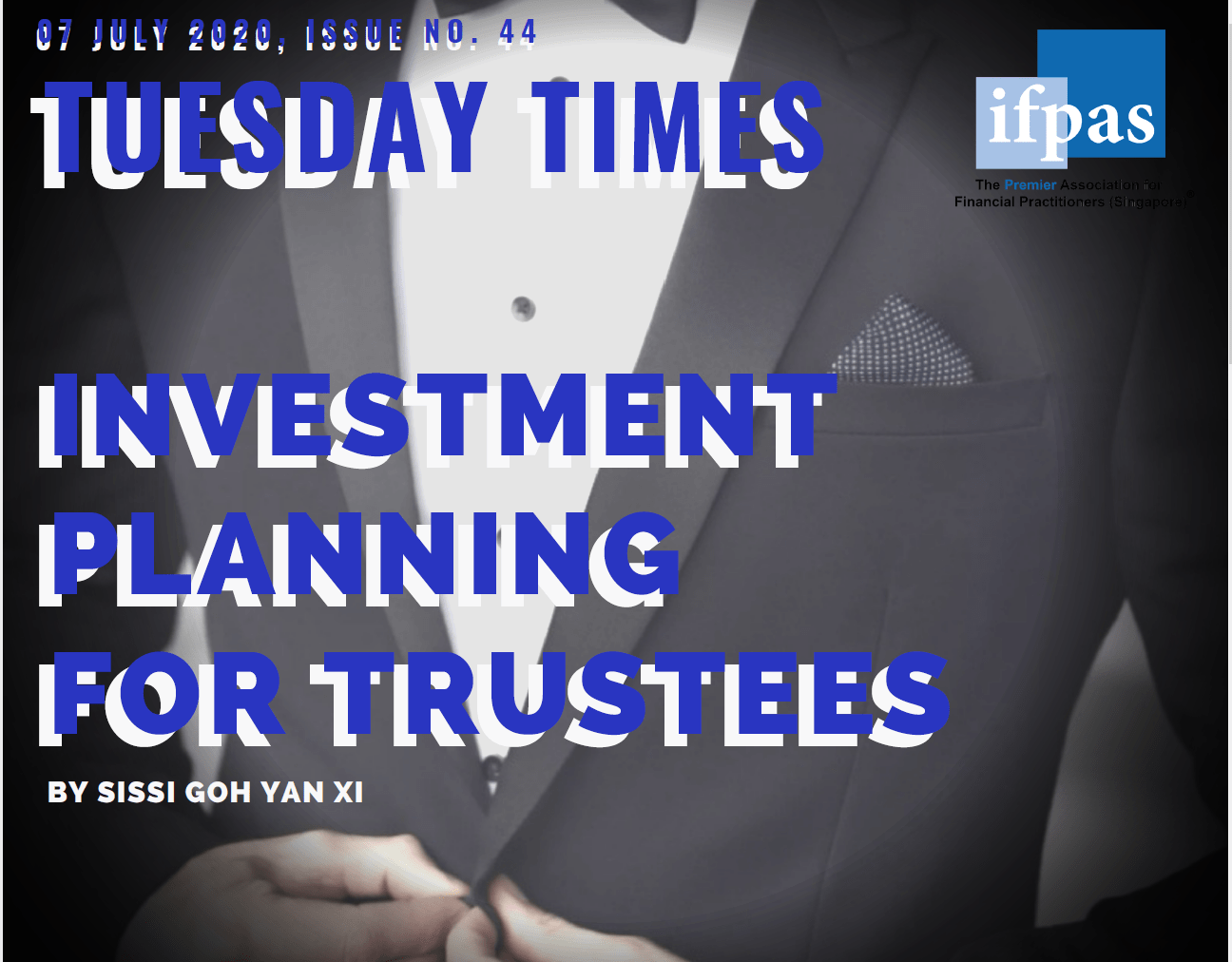
Investment Planning for Trustees
In 2008, a family outing turned into a tragedy. A baby survived the horrific car crash that wiped out her immediate family. A trust fund was set up and jointly
administered by four uncles from both sides of her family, forming the trustees of the fund. The baby is the beneficiary of the trust and she will gain control of the money when she turns 30. The uncles, as trustees, ought to act in the best interests of the beneficiary. They were given the administrative power to invest the trust fund in any manner they consider appropriate. However, the discretionary power of investment should be exercised in the best interest of beneficiaries rather than in the best interests of the trustees or any third parties.
For example, if in exercising such power, the trustees invest the trust fund in their own company or friend’s company, which is suffering financial problems, there would be a breach of fiduciary duty because of the conflict of interests. Under Section 6 of the Trustees Act, trustee is required to ensure duty of care while investing the fund for the benefit of beneficiary “a trustee shall, before exercising any power of investment, whether arising under this Part or otherwise, obtain and consider proper advice about the way in which the power should be exercised, having regard to the standard investment criteria.”
In this section, “proper advice” means the advice of a person who is reasonably believed by the trustee to be qualified to give such advice by his ability in and practical experience of financial and other matters relating to the proposed investment. Managing a trust requires a trustee to use reasonable care and skill, in particular the care, skill and diligence expected of a prudent man in managing his or her own affairs. Therefore, if a trustee fails to use reasonably prudent care and skill, he or she is in breach of duty. Therefore, if you were the adviser, how would you help the trustees manage the money for the benefit of the baby for the next 30 years before she turns 30? “Under Section 5 of the Trustees Act, which mentions about the standard investment criteria, a trustee shall from time to time, review the investments of the trust and consider whether, having regard to the standard investment criteria, they should be varied. The standard investment criteria, in relation to a trust, are —(a) the suitability to the trust of investments of the same kind as any particular investment proposed to be made or retained and of that particular investment as an investment of that kind; and (b) the need for diversification of investments of the trust, in so far as is appropriate to the circumstances of the trust.
Suitability comes from an understanding of client’s risk profile. However, in the situation discussed above, we should consider the baby’s risk profile instead of the uncles’ because the money will be given to her when she turns 30. In that case, how do we determine the financial goal of the baby? Likewise, how do we determine the portfolio mix? Do we use the commonly cited rule of thumb for asset allocation: the percentage of equities in the portfolio equals to 100 minus the baby’s age, which means 100% of the portfolio should be equities? Or if there is no way we can determine the risk profile of the baby, do we err on the conservative side? These are the questions that the financial adviser needs to provide guidance with. The financial adviser’s role is not to take on the trustees’ role. Instead, he or she is the investment planning adviser, who helps the trustees abide by the standard investment criteria and professionally assist the trustees in making the right investment decisions.
Important: The information and opinions in this article are for general information purposes only. They should not be relied on as professional financial advice. Readers should seek unbiased financial advice that is customised to their specific financial objectives, situations & needs. This advertisement or publication has not been reviewed by the Monetary Authority of Singapore.

Published By:
Sissi Goh Yan Xi
I am Sissi Goh, the legacy planner in Singapore, and the award-winning author of the book ‘Wealth Management Isn’t Just for The Rich’. I advise clients across the whole spectrum of wealth management and I specialise in family inheritance and succession planning.
I have experience in private wealth and hedge fund consulting. I am a Chartered Financial Consultant (ChFC), Chartered Life Underwriter (CLU), Registered Trust and Estate Practitioner (TEP), Certified Legacy Planning Associate (CLPA), Certified High Net Worth Advisor and Certified Family Office Advisor. I am a full member of Society of Trust and Estate Practitioners (STEP) and the youngest founding member of Asia Estate Planning Association (AEPA).
I graduated with a Master of Public Administration in International Finance Policy and Management, from Columbia University, in the City of New York. My philosophy is that an individual’s real wealth encompasses both financial and psychological aspects and that everyone can enrich their lives by adopting some of the principles of the wealthy.

CONTACT US
- 150 Beach Road #12-01/08, Gateway West Singapore 189720
- +65 62221889
- +65 62221019
- feedback@fa.com.sg
